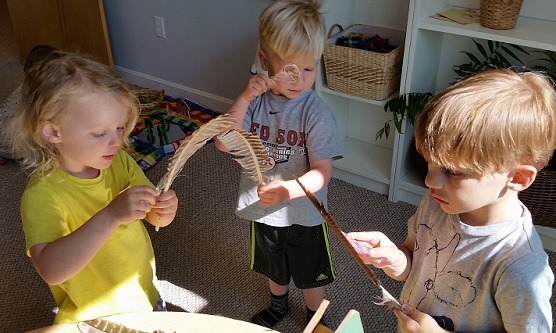Nurturing children’s sense of curiosity and love for learning
The spark that sets off a passion for learning that lasts a lifetime is curiosity. It is both a privilege and an obligation for us as parents, caregivers, and educators to cultivate this natural sense of awe and curiosity that is present in youngsters.
Developing a child’s natural inquisitiveness not only makes their school experience more rewarding but also provides them with the vital abilities necessary for flexibility and critical thinking.
In this piece, we will discuss the relevance of encouraging children’s natural curiosities, offer some concrete suggestions for igniting their passion for education, and stress the significance of providing children with educational materials that are free of plagiarism in their overall development as learners.
The Importance of Creating an Atmosphere That Encourages Curiosity
It is critical to encourage children’s natural curiosities for a number of compelling reasons, including the following:
Intrinsic motivation is driven by curiosity, which inspires children to seek knowledge and investigate the world around them out of a genuine desire in doing so.
Critical Thinking: Children who are naturally inquisitive are more prone to question things, evaluate information, and participate in critical thinking, all of which are talents that are quite useful when it comes to finding solutions to problems.
Adaptability: Curiosity is a key factor in developing adaptability, which enables youngsters to accept change, gain knowledge from new experiences, and thrive in a world that is constantly changing.
Learning That Lasts a Lifetime Curiosity, once stoked, can turn into an ingrained pattern that lasts a person’s entire lifetime and encourages them to explore learning opportunities throughout their lives.
Encouragement of children’s natural inquisitiveness can assist in the development of a growth mindset in which difficulties are viewed as chances for personal development and growth.
Encourage Curiosity and a Love of Learning Through These Useful Methods
The following are some tried-and-true methods that can be used to encourage children’s natural curiosities and a love for learning:
Encourage Children to Ask Questions and Create an Atmosphere Where They Feel Comfortable Doing So Encourage children to ask questions, encourage them to explore their interests, and encourage them to look for solutions.
Explore Together: Participate in activities that excite their interest, such as going on hikes in the great outdoors, conducting experiments in the lab, or going on field trips to museums and libraries.
Take a look together at: To encourage a passion for reading and an interest in discovering new things, try reading a range of books together that cover a variety of literary styles and topics.
Encourage and Support Interests: In addition to encouraging and supporting their interests and hobbies, you should also provide them with the resources and opportunity they need to fully explore their interests.
Set an Example for Others: Sharing your passions and areas of interest with youngsters is a great way to illustrate to them your own sense of wonder and enjoyment of acquiring new knowledge.
Learning through Hands-On Experiences: To make learning more engaging and tangible, incorporate learning through hands-on experiences, such as arts and crafts, do-it-yourself projects, or gardening.
Pose Open-Ended Questions Rather than searching for one-word answers, it is more productive to ask open-ended questions that foster conversation and critical thinking.
It is important to teach youngsters that making errors is a normal and necessary element of the learning process as well as an opportunity for personal development and advancement.
The Value of Educational Resources that Are Original and Free of Plagiarism
It is necessary to give educational tools that are original and free of plagiarism if one want to foster a love of learning and a sense of wonder in one’s children:
Information That Can Be Trusted Make certain that the instructional materials and resources you provide are founded on credible sources and the advice of industry professionals.
Content Suitable for Children of Different Ages It is important to adapt the material and the available resources to the child’s age and the stage of development they are currently in.
Be wary of plagiarized or unverified information, as this can contribute to misunderstandings and make the process of learning more difficult.
The final word
A gift that will last a lifetime is one that encourages children’s natural curiosities and helps them develop a passion for education.
We can equip children to embark on a lifelong path of investigation, discovery, and unending development if we acknowledge the relevance of their natural inquisitiveness, offer them concrete direction, and make certain that our educational resources are free of any instances of plagiarism.
Let us collaborate in order to establish a community that honors the inquisitive nature of every child and views education as a journey that lasts a lifetime and is replete with awe and delight at every turn.

